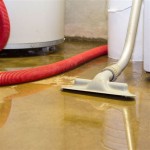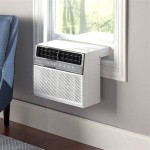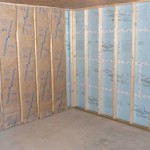Water In Basement When It Rains: Causes and Prevention
Water in the basement is a common problem for homeowners, especially during heavy rains. While it can be a frustrating and potentially damaging issue, understanding the causes and taking preventive measures can help keep your basement dry and your home protected.
Causes of Water Infiltration
There are several reasons why water may enter your basement during rainfall:
- Foundation cracks: Cracks in the foundation walls or floor can allow water to seep through, especially when hydrostatic pressure builds up due to heavy rains.
- Improper grading: If the ground around your home slopes towards the foundation, water can accumulate and drain towards the basement.
- Clogged gutters and downspouts: When gutters and downspouts are not properly cleaned and maintained, rainwater can overflow and drain near the foundation, saturating the soil around it.
- Window wells: If window wells are not properly graded or sealed, rainwater can seep in and enter the basement through the window openings.
- Damaged sump pump: If you have a sump pump installed in your basement, it may not function properly due to power outages or mechanical failures, leading to water accumulation in the basement.
Prevention Techniques
To prevent water infiltration into your basement, consider the following measures:
- Seal cracks and leaks: Inspect your foundation for any cracks or holes and seal them using hydraulic cement or epoxy. Pay attention to areas where pipes or utilities enter the basement.
- Improve drainage: Ensure proper grading around your home by sloping the ground away from the foundation. Consider installing a French drain or redirecting downspouts to drain water away from the house.
- Clean gutters and downspouts: Regularly remove debris from gutters and downspouts to prevent blockages that could lead to water overflow. Extend downspouts away from the foundation to direct rainwater further away.
- Install window well covers: Use window well covers or grates to prevent rainwater from entering through window wells. Ensure they are properly sealed and graded.
- Maintain sump pump: Regularly inspect and test your sump pump to ensure it is functioning correctly. Consider installing a backup sump pump or alarm system to prevent water damage in case of primary pump failure.
- Consider waterproofing: If persistent water infiltration occurs, consider professional basement waterproofing solutions such as exterior or interior drainage systems, vapor barriers, or sump pumps.
Conclusion
Water in the basement can cause significant damage and discomfort, but understanding the causes and implementing preventive measures can help keep your basement dry and protected. By addressing potential entry points, improving drainage, and maintaining essential systems, you can minimize the risk of water infiltration during heavy rains and ensure a dry and comfortable living environment in your home.

Help My Basement Leaks When It Rains News And Events For Systems Inc

How To Fix Water Leaking Into Basement After Heavy Rain Gj Macrae

Water Leaking Into Basement After Heavy Rain How To Stop It

Why Your Basement Leaks In Heavy Rain

Why Your Basement Leaks In Heavy Rain

What To Do If Basement Floods Every Time It Rains Expert Advice

7 Potential Causes Of Water In Your Basement Newcomb And Company

Why Your Basement Leaks In Heavy Rain Mt Drains Plumbing

9 Wintertime Reasons Your Basement Leak In Gaithersburg Md

The Best Methods For Basement Leak Repair Acculevel
Related Posts







